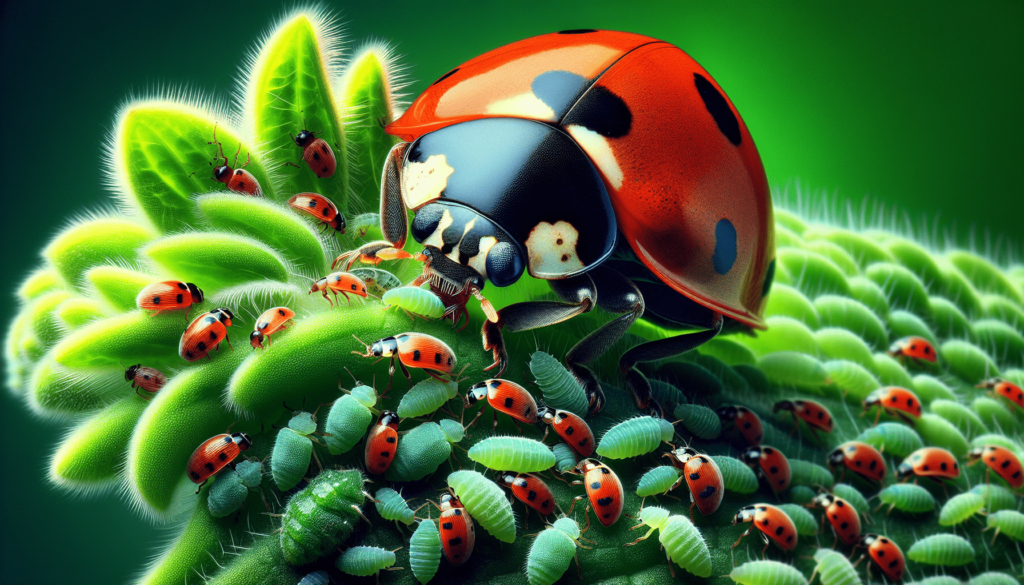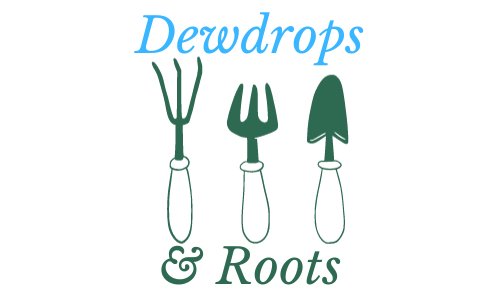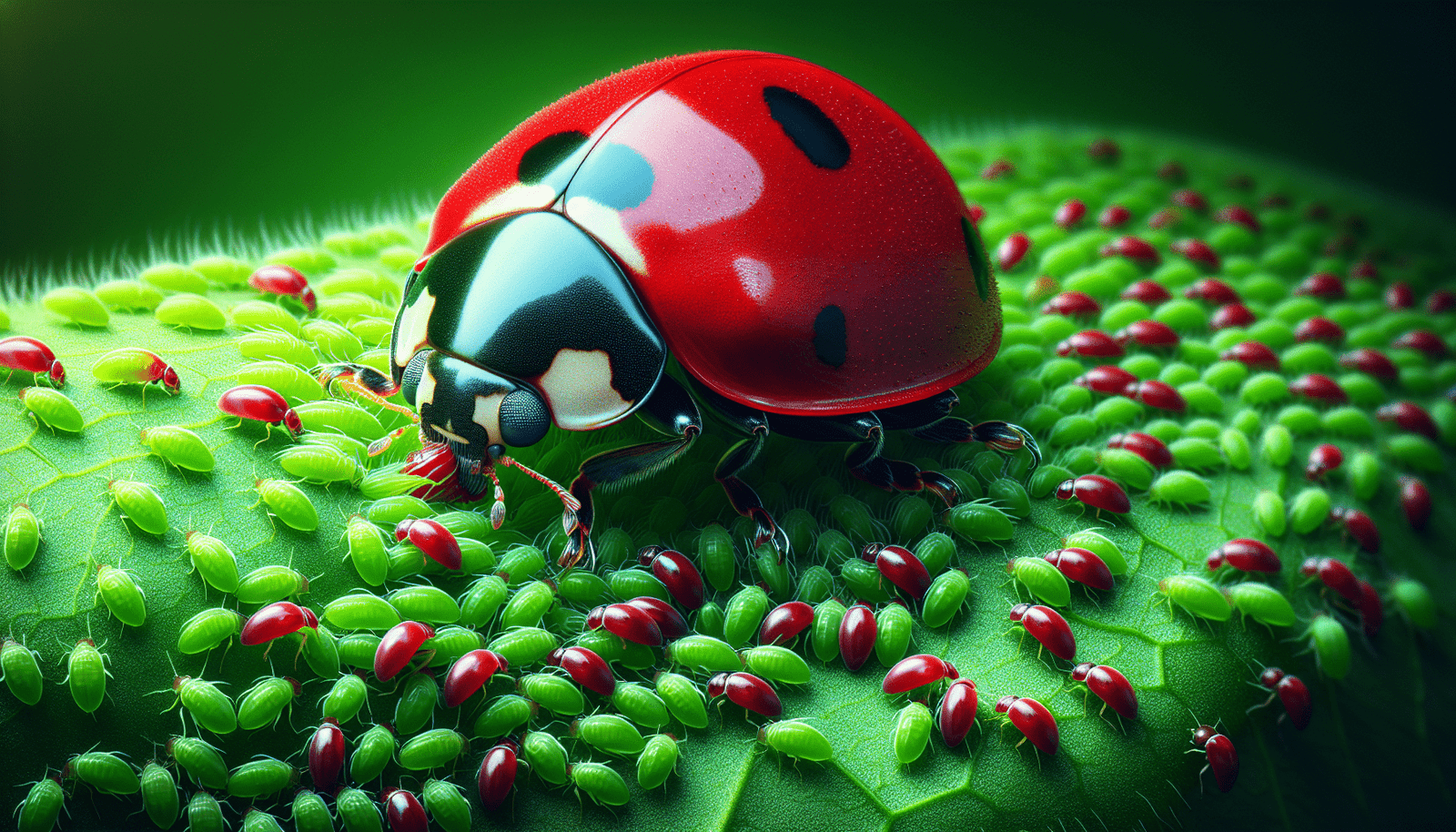The Best Strategies For Organic Pest And Disease Control
Have you been struggling to keep your garden pest and disease-free without using harmful chemicals? Fear not! In this article, we will explore the best strategies for organic pest and disease control that you can implement in your garden to ensure healthy and thriving plants. Let’s get started!

Understanding Organic Pest and Disease Control
Before we delve into the strategies for organic pest and disease control, it’s essential to understand what it entails. Organic pest and disease control focus on using natural methods to manage and prevent pests and diseases in your garden. By avoiding synthetic chemicals, you can protect the environment, wildlife, and your health while still maintaining a vibrant and healthy garden.
Why Choose Organic Pest and Disease Control
Choosing organic pest and disease control methods over synthetic chemicals offers numerous benefits. Not only are you protecting the environment and wildlife, but you are also safeguarding your health and the health of your family. Additionally, utilizing organic methods promotes a more balanced and sustainable ecosystem in your garden, benefiting all living organisms.
Prevention is Key
One of the most effective strategies for organic pest and disease control is prevention. By taking proactive measures to prevent pests and diseases from wreaking havoc on your plants, you can save yourself time, effort, and frustration down the line.
Healthy Soil, Healthy Plants
One of the best ways to prevent pests and diseases in your garden is by starting with healthy soil. Healthy soil leads to healthy plants, which are better equipped to resist pests and diseases. Ensure your soil is well-draining, nutrient-rich, and teeming with beneficial microorganisms to support plant growth and vitality.
Crop Rotation
Crop rotation is another effective method for preventing pests and diseases in your garden. By rotating your crops each season, you can disrupt the life cycles of pests and pathogens, reducing their impact on your plants. Additionally, crop rotation helps maintain soil fertility and reduces the risk of nutrient depletion.
Natural Pest Control Methods
When pests do make an appearance in your garden, there are several natural pest control methods you can employ to manage the situation without resorting to harmful chemicals. These methods are safe for the environment, wildlife, and beneficial insects, ensuring a balanced ecosystem in your garden.
Beneficial Insects
One of the most effective natural pest control methods is to attract and encourage beneficial insects in your garden. Beneficial insects, such as ladybugs, lacewings, and parasitic wasps, prey on pest insects, keeping their populations in check. Planting a diverse range of flowers, herbs, and other plants can help attract these beneficial insects to your garden.
Manual Removal
Sometimes, the best way to deal with pests is through manual removal. Hand-picking pests like caterpillars, beetles, and aphids can be an effective and satisfying way to control their populations. Just be sure to wear gloves and dispose of the pests in a sealed bag to prevent them from returning to your garden.
Neem Oil
Neem oil is a natural pesticide derived from the neem tree that can be effective in controlling a wide range of pests, including aphids, caterpillars, and beetles. Neem oil disrupts the pests’ life cycles and acts as a repellent, making it an excellent organic pest control option for your garden. Remember to follow the manufacturer’s instructions when applying neem oil to your plants.
Disease Prevention and Management
In addition to pests, diseases can also pose a significant threat to your garden plants. Incorporating disease prevention and management strategies into your gardening routine can help protect your plants from falling victim to harmful pathogens.
Proper Plant Spacing
Proper plant spacing is essential for preventing diseases in your garden. Crowded plants are more susceptible to diseases due to poor air circulation, which creates a humid environment ideal for pathogens to thrive. Be sure to follow spacing guidelines for each plant species to minimize the risk of disease.
Water Management
Overwatering or underwatering your plants can weaken them and make them more vulnerable to diseases. Proper water management is crucial for maintaining plant health and preventing diseases in your garden. Water your plants at the base to avoid wetting the leaves, which can lead to fungal infections.
Mulching
Mulching is a beneficial practice for disease prevention in your garden. Mulch helps regulate soil temperature, retain moisture, suppress weeds, and prevent soil-borne diseases. Organic mulches, such as straw, leaves, or wood chips, can improve soil health and reduce the risk of pathogens infecting your plants.

Organic Fertilization
Proper nutrition is vital for plant health and resilience against pests and diseases. Organic fertilizers provide essential nutrients to your plants without the use of synthetic chemicals, promoting healthy growth and strong immune systems.
Homemade Compost
Homemade compost is a valuable source of nutrients for your plants and can help boost soil fertility. Compost enriches the soil with organic matter, beneficial microorganisms, and essential nutrients, providing a balanced diet for your plants. By incorporating compost into your gardening routine, you can improve soil structure and fertility, leading to healthier plants.
Organic Fertilizers
Organic fertilizers, such as compost tea, fish emulsion, and bone meal, offer a natural and sustainable way to feed your plants. These fertilizers provide a slow release of nutrients, encouraging steady growth and reducing the risk of nutrient imbalances or toxicities. Additionally, organic fertilizers improve soil health and support beneficial microbial activity in the soil.
Conclusion
In conclusion, organic pest and disease control is a sustainable and environmentally friendly approach to maintaining a healthy garden. By implementing the strategies outlined in this article, you can protect your plants from pests and diseases while promoting a balanced ecosystem in your garden. Remember that prevention is key, and incorporating natural pest control methods, disease prevention strategies, and organic fertilization practices can help you achieve a thriving and vibrant garden without the use of harmful chemicals. Happy gardening!

